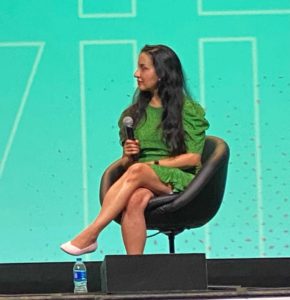
Where do you place your savings after you max out your retirement and HSA accounts?
How do you finance building a rental unit when there’s already a home on the lot?
Is it more beneficial to buy back pension time with post tax deductions or a 457b plan? Or should I not buy back pension time at all?
In today’s episode, former financial planner Joe Saul-Sehy and I discuss the purpose and practice of mindful money.
Do you have a question on business, money, trade-offs, financial independence strategies, travel, or investing? Leave it here and we’ll answer them in a future episode.
Enjoy!
Adam asks (at 02:27 minutes): I’m onboard with the passive investment approach that involves buying low cost index funds and holding them for years. This is what I’ve done in my Roth account, where most of my holdings are in Vanguard’s total stock market index ETF. I’m currently 33 and hope to retire by 50.
To reach retirement sooner, I’m wondering if I can beat VTI’s return by taking a more active approach. I know that active investing strategies rarely outperform passive investing strategies over the long run.
However, I don’t plan on picking individual stocks. My approach would be to change chosen index funds based on observed market trends. For instance, since large cap growth stocks have led the market for the last several years, I’d move my assets into something like Vanguard‘s mega cap growth index fund, which is still diversified.
If trends began to shift into small cap performance, I’d move into Vanguard’s small cap ETF. To avoid market timing, I’d wait one – two years before making big changes to ensure that the trends I’m seeing aren’t temporary. I’m unconcerned with volatility since retirement is still more than ten years away.
The primary benefit of this active/passive approach would be higher returns, if it works.
On the other hand, I can think of at least two risks: First, while I can easily move between funds in my retirement account, moving funds around in my taxable accounts would trigger taxes, thereby lowering the net returns.
There could also be a psychological cost to taking an active approach if I’m worried about whether my portfolio is beating the total market fund or the S&P 500.
I would love your opinion on this since it’s not something I see discussed much in the active vs. passive debate.
Chris asks (at 22:22 minutes): I’m 32 years old. I used a retirement calculate to determine how much I’d need to maintain my current lifestyle of about $40,000 a year and came out with roughly $1.5 million needed to retire at the age of 50, with an 8% average yearly return.
I started investing seriously about 3 years ago and I have $5,000 in my retirement accounts, not counting emergency funds and cash. I have $18,000 in a money market account for emergencies, $15,000 for down payment, and $5,000 in a sinking fund for a car that I’ll need in the future. No loans or any other debt.
I maxed out my Roth IRA, 401k, and HSA this year and $95,000 is invested in total market funds. I’m a saver and single with no kids, but plan to have a family in the next five years. My rent is $1,500 a month and my gross salary is $90,000 in DC.
My goal is to with reach FIRE at 50 and continue to work optionally. To reach FIRE, I’d have to invest $3,000 per month. I plan to move to Houston or Dallas for family, lower cost of living and lower income taxes.
Because I maxed out my Roth IRA, 401k, and HSA contributions, my next step is to open a taxable account but frankly, I’m not sure where to place that money since I’m already invested in total market index funds. Should I repeat this strategy in my taxable account?
Secondly, I have REIT’s in my Roth and I’m interested in the real estate market but have no experience. I’m slowly learning about real estate investing and am open to renting a home after living there for a few years or purchasing properties to rent out that need a face lift and using a management company. Would you recommend using a property manager for the first rental? Would you create an LLC?
Yvan asks (at 39:36 minutes): I’m a physician in California, in my thirties, married to a beautiful stay at home wife and have a gorgeous three-year-old daughter. I didn’t know anything about personal finance until I finished my residency – becoming a doctor was the only thing that mattered. I have no plans to retire early, just looking for optimization.
After my residency in September 2019, I had zero savings. I had almost $600,000 in student loans, car loans, and personal debt. My county hospital base salary was $220,000 and a pension contribution of 9.97%. After three months, I switched to a new contract with a $242,000 base, but no pension or 401k.
By the summer of 2020, I was debt free except for my student loans and had built a three-to-six-month emergency fund. Since then, I’ve investing $19,500 in a 457b plan and $6,000 in a Roth annually, $6,000 in an HSA annually and contributed $1,200 to my employer match.
I’m thinking about going back to the original contract with the pension and continue with the 457b, back door Roth, and continue with the HSA contributions as well. I could just use the 457b to buy back the pension time or I can do post tax deductions over one or two years to buy back the pension time. I could also stay with my current contract. Which one would be best?
I also have a paid off home in Miami. It was purchased in 2010 and have not lived in it in five years. I want to use it as a rental, and I currently have family members living in it. I’m worried that I may not have enough money to do everything– I may have to wait to renovate in 2023 or 2024. Which of these options do you think is best?
Anonymous asks (at 56:42 minutes): I own a home in a desirable neighborhood in southern California. Part of the reason that I bought this home is that it’s zoned for multiple units, even though it’s a single-family home and it has quite a large lot.
I’d like to build a rental unit on the back of the property. I’m not looking to build an ADU because of the tight square footage requirements. Instead, I’m looking to build a 2-bedroom, 2-bathroom home, and I expect to get $2,000 – $2,500 in rent.
I’ve had a hard time finding resources for this kind of “build to rent” project.
What’s your opinion on building to rent on a property that you already own?
Secondly, I’d love to know if there is a rule for construction of this type, like the 1% rule.
Third, I’ll have to take out a loan for construction but I’m not sure if the best way to do that is a home equity line of credit or a construction loan and then refinance once the project is complete. Do you have any recommendations around financing?
Thanks to our sponsors!
Bluehost
Want to start a blog, but need hosting? Sign up with Bluehost and get a special deal – hosting starting at $2.95 per month. You’ll get free domain and site builders, a one-click WordPress install, 24/7 support, and a 30-day money-back guarantee.
Wealthfront
Want to create a portfolio of globally diversified, low-cost index funds personalized just for you? There are no manual trades, picking stocks, or watching the stock market every day with Wealthfront. They handle all the investing based on your preferences. Wealthfront is trusted with over $20 billion of assets, and you can get your first $5,000 managed for free by going to wealthfront.com/paula.
Grove.co
Grove makes shopping for natural products easy. You don’t have to search for a local store hoping that they carry what you want, and you don’t need to worry about overpaying for “organic” products from questionable sites. Interested? Go to grove.co/affordanything to get a free gift set worth up to fifty dollars with your first order.

I’m wearing my Betabrand pants on a flight – they’re that comfortable!
Betabrand
Most of us find ourselves in situations where we need to wear dress pants, whether it be for work, a conference, or a meeting. If only you could wear comfortable pants to everything, right? Well…now you can! Betabrand offers dress pant yoga pants, and they’re as awesome as they sound. Check out betabrand.com/paula and get 30% off your order.